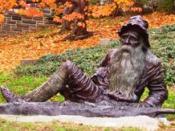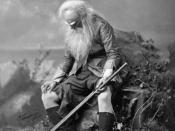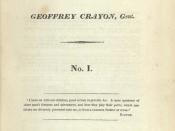In every establishment of order, there is always a select group of people who contend with the mainstream conventions--the outcasts. By creating new templates, outcasts are condemned for creating a discrepancy in society. In contrast to a conformist, an outcast is a person who is rejected or cast out because of uncharacteristic beliefs. For example, in The Adventures of Huckleberry Finn, the title character is a vagrant who finds himself at odds with the prevailing customs of his society and decides to follow his own beliefs. The short stories "The Sculptor's Funeral" and "Rip Van Winkle" also portray outcasts that are not attuned to the societies they live in: Harvey Merrick has an affinity for the arts in a region where such a profession is scorned and Rip Van Winkle is literally from a different time period. Despite their good intensions, these characters are perceived as detrimental to society for straying away from the established order.
As long as outcasts reject societal norms, discord will persist between society and an outcast not because of the latter's endangerment to society's well-being, but because of the threat his presence poses to the majority stronghold.
Rip Van Winkle is an outcast in regards to societal norms, but because of his absent-mindedness and complacency, he poses no threat to the current framework of society and is treated as a valued citizen. Rip is an outcast because of his dissociation with his current time period after a twenty year slumber. Even after a monumental battle liberating America from England, and even after proclaiming himself a "loyal subject of the King" (Irvin 133), Rip is nonetheless discharged because of his lazy disposition and passiveness. Although he does not like doing work, Rip never shies from helping other people-this also grants him acceptance...


